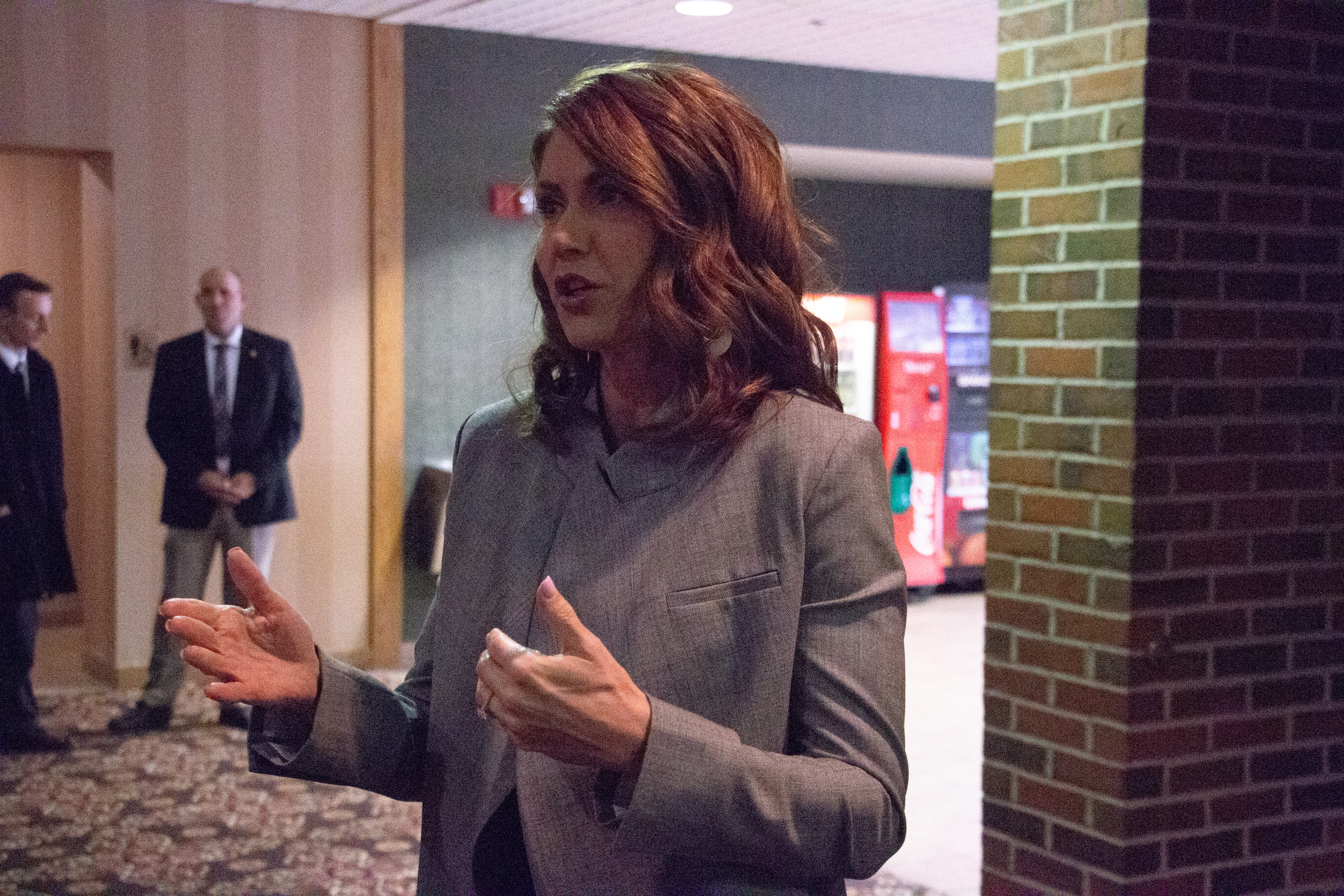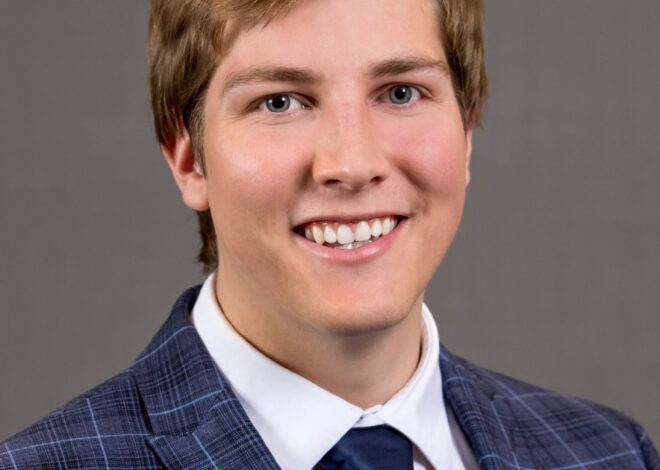
Kristi Noem may face challenges as South Dakota’s first female governor
South Dakotans elected the state’s first female governor, Kristi Noem, last November. Noem served in the U.S. House of Representatives for South Dakota before she was elected governor.
Although Noem has experience within South Dakota politics, some women said there is still fear she will not be taken seriously as a leader because of her gender and political party.
Julie Hellwege, USD professor of American politics, said Noem will face issues earning respect as a leader because of the idea that women are more content in roles of less power and authority.
“(A governor) is a single person making decisions and that is typically seen as a very male-dominated arena of politics,” she said. “Becoming governor is a much greater fear than becoming a member of Congress because Congress is a (collaborative) body and there is more talking and more people working together. That is stereotypically deemed more appropriate for women than the governorship.”
Although this election saw an increase in women elected to state legislatures across the nation, Hellwege said there is still a lack of diversity within the female representation.
“I think just saying we have more women is not enough. We need to have more diversity among the women. We need to have more women of color, more Native American women, we need to have more conservative women,” Hellwege said.
Being conservative and female can cause challenges for women in politics in general, but specifically, in leadership positions, Hellwege said.
“Conservative, traditional religious values do often create a hierarchical relationship or at the very least segregation between men and women,” Hellwege said. “Either there is a hierarchical relationship where the man is supreme to the woman —usually wife— or at least they are expected to have different influences, where men do public work and women do private work only.”
Amber Hulse, a sophomore political science major, and Student Government Association member said through working on campaigns this election year, she has seen first hand the discrimination women face in politics.
“I didn’t work on Kristi Noem’s campaign, but just being around campaigns, one of the people that worked for her campaign called someone and asked if Kristi Noem had his support. The man said he had never voted for a Democrat in his life, but he would vote for a man before he would ever vote for a woman to be our governor,” Hulse said. “That is still a stigma that is still out there, that is someone who really thinks that women should not have leadership positions.”
The Volante traveled to Pierre, S.D. for Newspaper Day and had the chance to speak to Noem. She said her main goal is to focus on family and building family relationships while in office.
“For me, it’s really about strengthening families and helping people,” Noem said. “We do a lot of things right in South Dakota, we’re pretty fiscally right, we make good decisions, I think the challenges that we do face are because of the breakdown of a family. We need to take better care of people.”
Noem continues to post stories of her own family life online. Hulse said while Noem is trying to make herself seem relatable in these social media posts, it may be hurting her representation as a strong female leader.
“She has been posting a lot of different videos of herself trying to be relatable. I think that is her thing, where she tries to be relatable. Like, ‘I’m just a regular mom and wife just like everyone else and I just happen to be South Dakota’s governor,’” Hulse said. “I think that will also hurt her in some sense because people won’t take her as seriously and people won’t see her as a strong authority because she is a woman.”
Gianna Miranda, a sophomore political science major and vice president of College Republicans, said being a conservative woman is challenging in college and in the world. She said that this makes it harder for conservative women to step into higher positions.
“I know people here at USD who are afraid to speak up in their political science classes because they are afraid that their classmates are going to attack them,” she said. “I try to deal with (negative backlash) as peacefully as I can. I just say, ‘I respect your decisions.’ That’s all I say to them because I know if I show any sort of backlash I’m going to be the bad guy. I don’t want to be the bad guy anymore.”
Hulse said she thinks there are fewer conservative females in the legislature because of conservative values related to social issues.
“I think it is also hard for women to be conservative because women’s health issues such as abortion and access to health care, which are usually Democratic issues. A lot of issues that women usually take up that are women’s issues often end up being liberal issues and it’s hard to be liberal or more progressive with women’s issues and also be conservative and Republican on other issues that don’t affect women,” Hulse said. “It is a hard battle to have, but especially when you’re running a campaign because you can’t have a straight forward campaign that fits into your party.”
Being a woman, Miranda said there is pressure to conform to more liberal ways of thinking and said conservative men are not ridiculed for their values like women are.
“Conservative women are then told you’re supposed to be pro-life and you’re supposed to be a feminist if you are a woman. I’m not, so I think that sets us apart from the boys because they don’t have any of these standards that we are supposed to live up to,” Miranda said. “But I just encourage more conservative women to get involved in politics because we are an underrepresented group.”
Hellwege, Hulse and Miranda all said they feel having a female governor will help break down some of the stereotypes related to conservative women in leadership roles.
“I think it’s a big deal for South Dakota, especially being such a red state. It breaks down the stigma and shows people it’s allowed to be done, but then also she is a role model and someone that other women can look up to and see that they are doing it so they can too,” Hulse said. “Kristi Noem will have a really hard time in her term, but it will pave the way for women to come and get involved in politics.”


